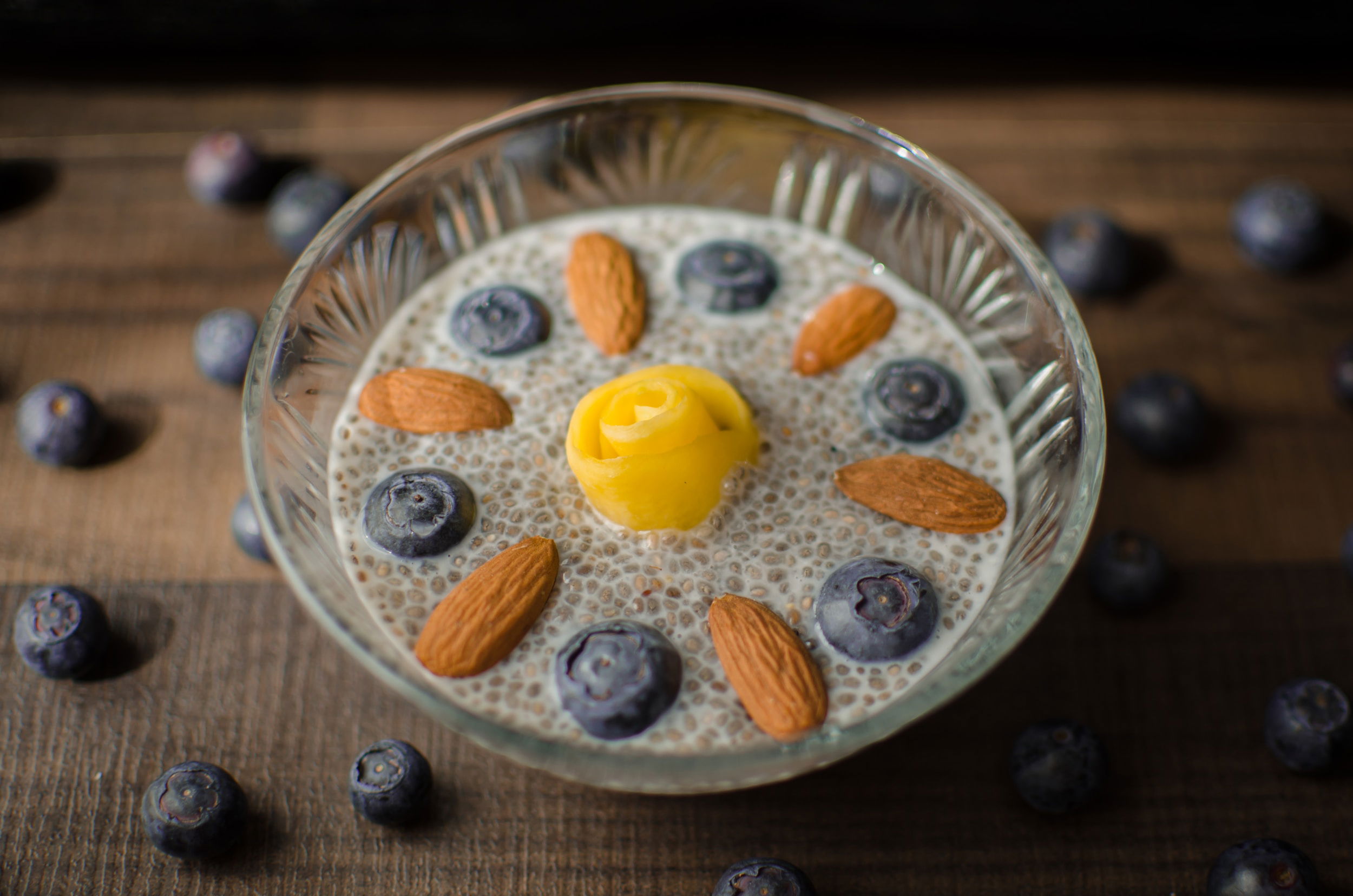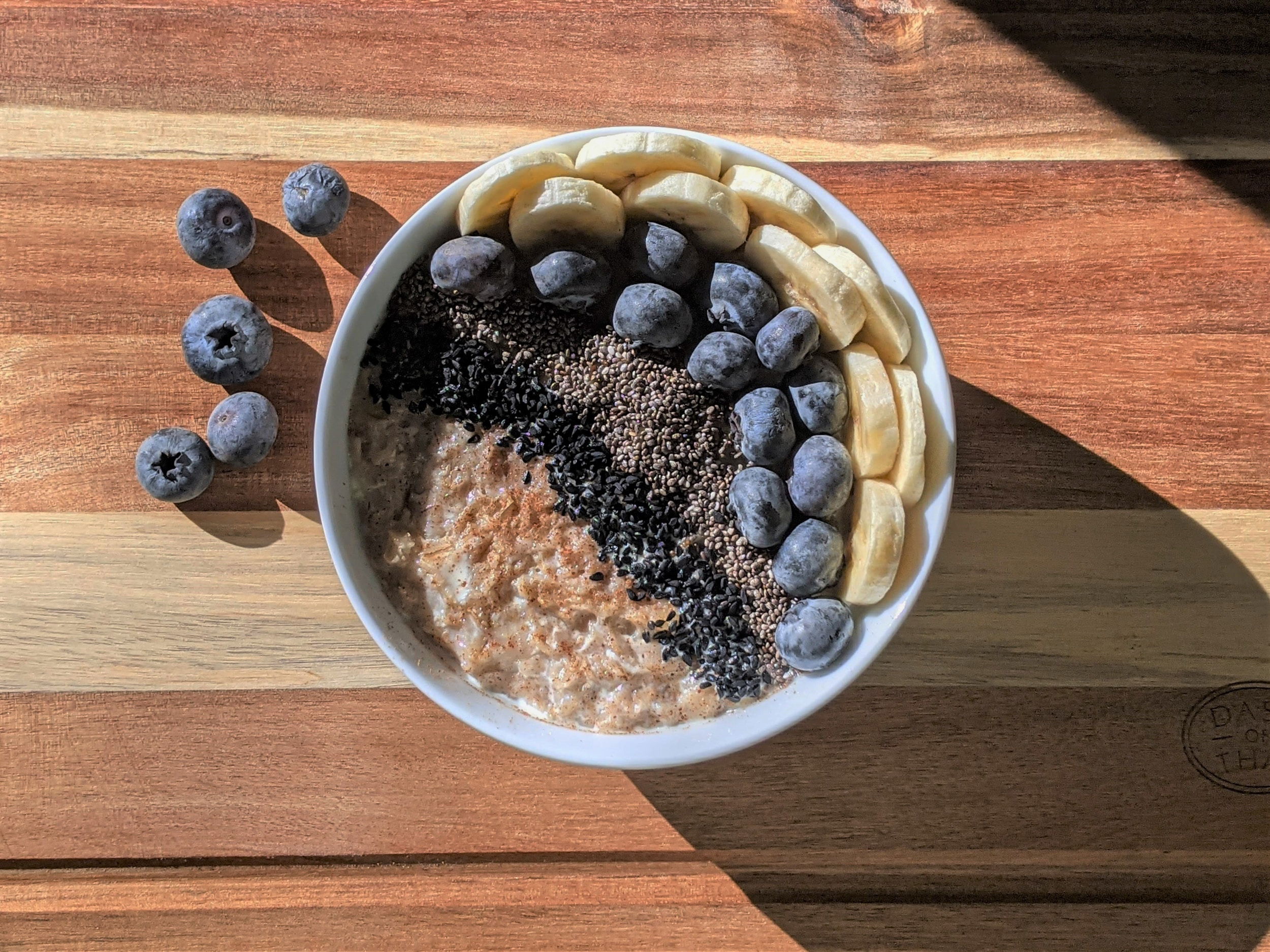Chia Seeds: Tiny Superfoods with Mega Health Benefits
In the world of nutrition, chia seeds have taken center stage as tiny powerhouses packed with an impressive array of health benefits. These small seeds, derived from the Salvia hispanica plant, are celebrated for their exceptional nutritional profile, versatility in culinary applications, and potential to support overall well-being. From heart health to weight management and digestive wellness, chia seeds have earned their status as a superfood. In this comprehensive guide, we will explore the world of chia seeds, uncover their nutritional secrets, delve into their potential health advantages, and provide insights into incorporating them into your diet.

The Nutritional Treasure of Chia Seeds
Chia seeds are teeming with essential nutrients, making them a highly regarded superfood. Here's a glimpse into the nutritional profile of chia seeds:
1. Omega-3 Fatty Acids:
Chia seeds are one of the richest plant-based sources of alpha-linolenic acid (ALA), a type of omega-3 fatty acid. Omega-3s are known for their anti-inflammatory properties and numerous health benefits.
2. Dietary Fiber:
Chia seeds are exceptionally high in dietary fiber, with just one ounce (about two tablespoons) containing a significant portion of the daily recommended intake. Fiber supports digestive health, helps maintain steady blood sugar levels, and promotes feelings of fullness.
3. Protein:
Chia seeds provide a modest amount of protein, making them a valuable addition to plant-based diets. They contain essential amino acids, which are the building blocks of proteins.
4. Antioxidants:
Chia seeds contain various antioxidants, including chlorogenic acid and quercetin, which help protect cells from oxidative damage caused by free radicals.
5. Vitamins and Minerals:
Chia seeds are a good source of essential vitamins and minerals, including calcium, phosphorus, magnesium, and manganese.
6. Low in Calories:
Despite their nutrient density, chia seeds are relatively low in calories, making them a great choice for those looking to manage their weight.
Health Benefits of Chia Seeds
The nutrient-rich composition of chia seeds contributes to a wide range of health benefits:
1. Heart Health:
Chia seeds' omega-3 fatty acids can help reduce inflammation, lower triglycerides, and improve cholesterol levels, all of which support heart health.
2. Weight Management:
The high fiber and protein content in chia seeds promote feelings of fullness and can aid in weight management by reducing overall calorie intake.
3. Digestive Wellness:
Chia seeds' soluble fiber forms a gel-like substance when mixed with liquid, aiding digestion and preventing constipation.
4. Blood Sugar Control:
The fiber in chia seeds can help stabilize blood sugar levels by slowing the absorption of sugar from the digestive tract.
5. Bone Health:
Chia seeds are a source of calcium, magnesium, and phosphorus, all of which contribute to maintaining strong and healthy bones.
6. Antioxidant Protection:
The antioxidants in chia seeds help protect cells from oxidative stress, potentially reducing the risk of chronic diseases.
Culinary Uses and Preparation
Chia seeds are incredibly versatile and can be incorporated into various dishes and recipes:
1. Chia Pudding:
Mix chia seeds with your choice of liquid (such as almond milk or yogurt) and sweetener, and let it sit in the refrigerator to create a delicious and nutritious chia pudding. Top with fruits, nuts, or honey.
2. Smoothies:
Add a tablespoon or two of chia seeds to your morning smoothie for added thickness, texture, and nutrition.
3. Baking:
Use chia seeds as an egg substitute in baking by mixing one tablespoon of chia seeds with three tablespoons of water and letting it sit for a few minutes until it forms a gel-like consistency.
4. Sprinkling:
Sprinkle chia seeds on top of cereals, yogurt, salads, or oatmeal to boost their nutritional content.
5. Thickening Soups and Sauces:
Chia seeds can be used to thicken soups, stews, and sauces naturally.
A Word of Caution
While chia seeds offer numerous health benefits, it's essential to consume them in moderation, especially if you're new to including them in your diet. The high fiber content may lead to digestive discomfort if consumed excessively or without adequate hydration.

Conclusion
Chia seeds are indeed tiny, but their nutritional impact is enormous. Packed with omega-3 fatty acids, fiber, protein, vitamins, and minerals, these little seeds offer a wide range of health benefits, from heart health to digestive wellness. By incorporating chia seeds into your daily diet through puddings, smoothies, baking, or as a topping, you can unlock their nutritional potential and take a significant step toward supporting your overall health and well-being.
Sources:
- National Institutes of Health (NIH). "Omega-3 Fatty Acids." Read more
- Mayo Clinic. "Dietary fiber: Essential for a healthy diet." Read more
- Harvard T.H. Chan School of Public Health. "Protein." Read more
- U.S. Department of Agriculture. "Chia Seeds, Unprepared." Read more
- National Institutes of Health (NIH). "Antioxidants: In Depth." Read more